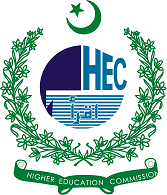Effects of ICTs on the Academic Performances of Students
DOI:
https://doi.org/10.58932/MULA0016Keywords:
ICTs, academic performance, private sector, public sectorAbstract
Information and Communication Technology (ICT) has emerged as a dominant force significantly influencing various aspects of human activities. Its profound impact has brought about a revolution in the methods of teaching and learning, fundamentally altering the way people engage in education, work, and leisure. This research delves into the repercussions of ICTs on students' academic performance. To attain this objective, a survey approach was employed to collect primary data from students attending six universities in Lahore: LC, GC, PU, FC, UMT, and Comsats. The data collection instrument utilized was an online questionnaire survey. With the inclusion of both male and female students, the findings were generalized to encompass both genders. The outcomes reveal a conspicuous disparity in the utilization of ICTs between public and private sector universities. Additionally, it highlights a detrimental impact on the academic pursuits of students attending public sector universities when adequate ICT resources are lacking. These findings emphasize the importance of incorporating ICT tools and resources into educational settings to enhance learning outcomes, particularly in the public sector, where access to such technologies may be limited.
Keywords: ICTs, academic performance, private sector, public sector
References
Abe. (2007). Impact of Information and Communication Technology (ICT) on Teacher Education in Ikere. Journal of Education, 169-175.
Adeyami. (2011). Impact of information and communications technology (ICT) on the effectiveness. AJSMS.
Ali. (2016). The role of ICT in teaching-learning effectively in higher institutions of learning. International Journal of Innovative Research in Science, 61-73.
Amiri. (2009). The effects of information and communication technology on at-risk children of low economic status. International Journal of Education and Development using Information, 141-147.
Annreetha. (2014). Teaching and Learning with ICT Tools: Issues and Challenges Perspective. Journal of Education Technology.
Ashley. (2016). 10 reasons today’s students need technology in the classroom. International Journal of Science and Research.
Basri, W. S., Alandejani, J. A., & Almadani, F. M. (2018). ICT adoption impact on students’ academic performance: Evidence from Saudi universities. Education Research International, 2018, 1-9.
Bomah, K. B. (2014, December). Digital divide: effects on education development in Africa. In Conference in LYIT Dept. of Computing: Technical Writing Presentation.
Chandra. (2008). The methodological nettle: ICT and student achievement. Journal of Educational Technology, 1087-1098.
Gaillard, F. (2001). Understanding the ICT as it relates to electronic commerce. Communication and Media.
Galuszka. (2007). Digging out of the ICT. Diverse Issues in Higher Education.
Helsper. (2010). Gendered internet use across generations and life stages. Communication Research, 352-374.
Hussain, S., Wang, Z., & Rahim, S. (2013). E-learning services for rural communities.
Ismail. (2020). The Impact of the Lack of ICT Resources on Teaching and Learning. Information System.
Ishaq, K., Azan, N., Zin, M., Rosdi, F., Abid, A., & Ijaz, M. (2020). The impact of ICT on student’s academic performance in public-private sector universities of Pakistan. International Journal of Innovative Technology and Exploring Engineering, 9(3), 1117-1121.
Kajee, L., & (2011). Students access to digital literacy at a South African university. Southern African Linguistics & Applied Language Studies.
Kanwal, F., Rehman, M., & Asif, M. M. (2020). E-learning adoption and acceptance in Pakistan: the moderating effect of gender and experience. Mehran University Research Journal of Engineering and Technology, 39(2), 324-341.
Kessy, D., Kaemba, M., & Gachoka, M. (2006, July). The reasons for underuse of ICT in education: In the context of Kenya, Tanzania, and Zambia. In Fourth IEEE International Workshop on Technology for Education in Developing Countries (TEDC'06) (pp. 83-87). IEEE.
Khan. (2015). The impacts of ICT on students' performance. A Review of Access to Information.
Lembani, R., Gunter, A., Breines, M., & Dalu, M. T. B. (2020). The same course, different access: the digital divide between urban and rural distance education students in South Africa. Journal of Geography in Higher Education, 44(1), 70-84.
Madhuri V. Tikam (2013). Impact of ICT on Education. International Journal of Information Communication Technologies and Human Development, 5(4), 1-9.
McLaren, J. (2002). ICT' Among Financially Disadvantaged Families in Australia. First Monday.
Milheim. (2006). Further analysis of the ICT from a socio-economic perspective. Not just an access issue.
Mossberger, K., Tolbert, C. J., & Stansbury, M. (2003). Virtual inequality: Beyond the digital divide. Georgetown University Press.
Okoro. (2016). Effects of Information and Communication Technology (ICT) Application on Academic Achievement of Students. Journal of Interdisciplinary Research Method.
Oliver, R. (2002). The role of ICT in higher education for the 21st century: ICT as a change agent for education. Retrieved April, 14, pp. 2007.
Schulz. (2005). Measuring the socio-economic background of students and its effect on achievement. American Educational Research Association.
Semenov. (2005). Why schools should invest in ICT. Technology Integration.
Selwyn, N. (2011). ‘It’s all about standardization’–Exploring the digital (re)configuration of school management and administration. Cambridge Journal of Education, 41(4), 473-488.
Shamim. (2016). The Impact Of Ict On Students' Performance: A Case Study On Undergraduate University Students. Business Informatics.
Singh, S., Singh, S., & Kumar, A. (2018). Women and ICT: A study on access and perceptions in north India. Indian Journal of Human Development, 12(3), 401-419.
Spiezia. (2010). Does computer use increase educational achievements? Economic Studies.
Talukder, M. S., Alam, M. J., & Apu, M. A. I. (2015). The Impact of ICT On Students’ Performance: A Case Study On Undergraduate University Students. Manarat International University Studies, 4(1), 137-147.
Tarman, B. (2003). The ICT in education. Eurasia Journal of Mathematics, Science and Technology Education.
Vineeth. (2021). What is Academic Performance? Spiritual Intelligence in Classroom.
Williams, F., Philip, L., Farrington, J., & Fairhurst, G. (2016). ‘Digital by Default’ and the ‘hard to reach’: Exploring solutions to digital exclusion in remote rural areas. Local Economy, 31(7), 757-777.
Yusuf. (2005). Information and communication education: Analyzing national policy for ICT. International Education Journal, 316-321.




